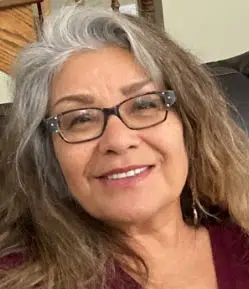
Dr. Anita Olsen Harper/Photo Supplied
A year long study on the reality of human trafficking in Northwestern Ontario is underway.
Funded by Ontario’s Solicitor General in cooperation with Provincial Police, Dr. Anita Olsen Harper of Lac Seul First Nation has been selected to do the research study.
Harper has a PHD in Education from the University of Ottawa and stresses this study is long overdue with very little known about human trafficking in the Northwest.
“In the northeast there have been a few studies initiated by Universities, but up in the Northwest region I haven’t found anything that has to do with human trafficking research.”
The study will cover communities from Thunder Bay to the Manitoba Border with a focus on Indigenous youth.
“It’s highly illegal and extremely destructive to the youth who are involved and they are mostly youth and are mostly girls who are recruited. It destroys lives, it’s extremely hard to facilitate a recovery,” Harper states. “Many times those they have trusted are those who have brought them into trafficking, whether it’s through coercion, manipulation, its difficult for those who have been trafficked to lead the life they want to live.”
Harper adds the study was supposed to involve travel and gatherings with First Nation police, but that has been affected by COVID-19.
“Everything that I’m doing will be done by phone, zoom or email. There is basically three groups of people I will be interviewing, survivors, community or women’s groups and police personal. It will take time to make connections, especially when I can’t be out there in the field meeting people and not being able to travel from some of the main communities like Sioux Lookout or Thunder Bay.”
Harper explains what she hopes to accomplish with her research.
“I’d like to find out what the dynamics are, who the traffickers are, who is being trafficked, what roughly the numbers are, the pathways from the cities and the towns and how the youth are being recruited,” Harper goes on to say that social media has become a common recruiting method for traffickers. “I would just like to get a real good response from the communities. I want them to understand how important this is and I think they do, nobody wants to see their youth suffering and having to be at the hands of people who absolutely do not care about them. We really have to get a handle on this, with the communities help.”
While there’s not have a clear picture of how human trafficking works in the Northwest, Harper is hopeful that this study and listening to survivors can help bring that to light.
If you are a survivor of human trafficking, contact Dr. Olsen Harper at aolsenharper@bell.net
For additional information on human trafficking, visit Canadian Centre To End Human Trafficking or Trafficking Hotline call toll-free at 1-833-900-1010.
ABOUT THE RESEARCHER
Dr. Olsen Harper has an in-depth awareness and understanding of Indigenous issues in Canada. With a PhD in Education from University of Ottawa, her primary expertise is in anti-violence in Indigenous communities, Indigenous education/training, health and well-being, community-based participatory research, Indigenous knowledge translation and history/heritage representation. Dr. Olsen Harper is an active board member of the Màmawi Together, Community Reconciliation in Action and supports many advisory committees that work to address Indigenous concerns.



